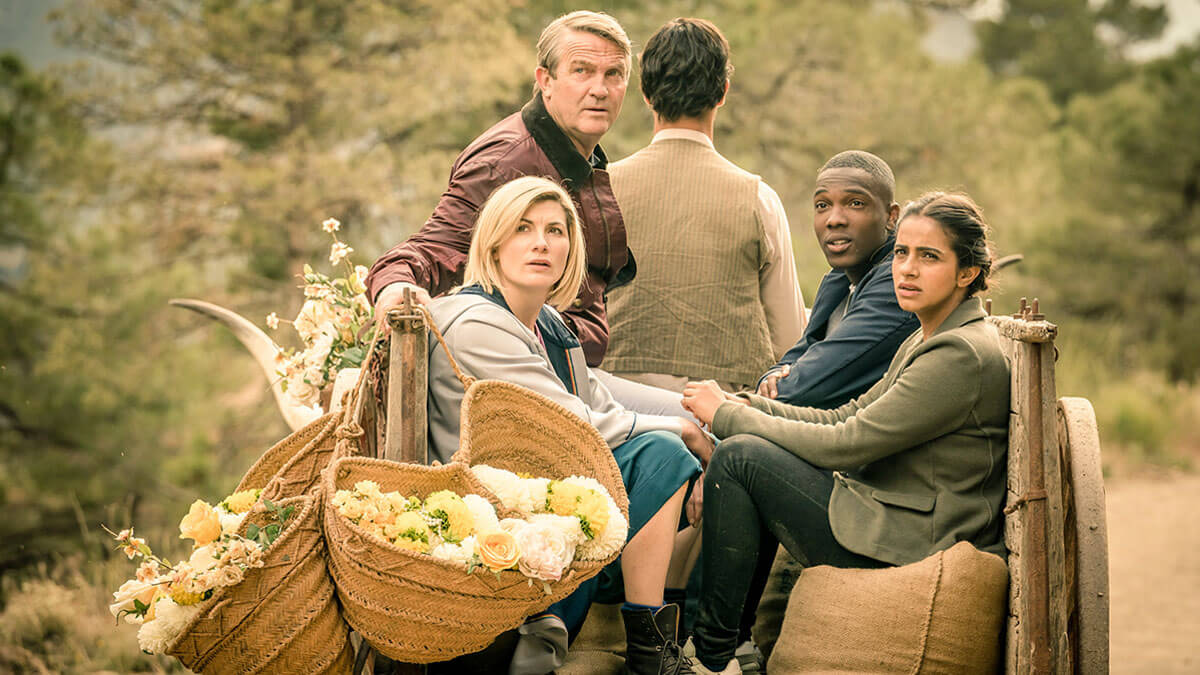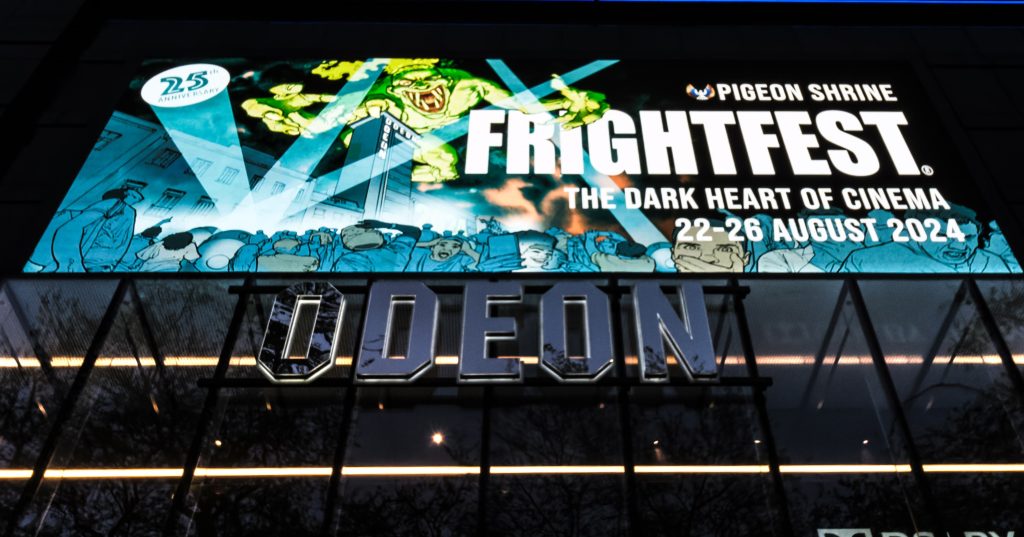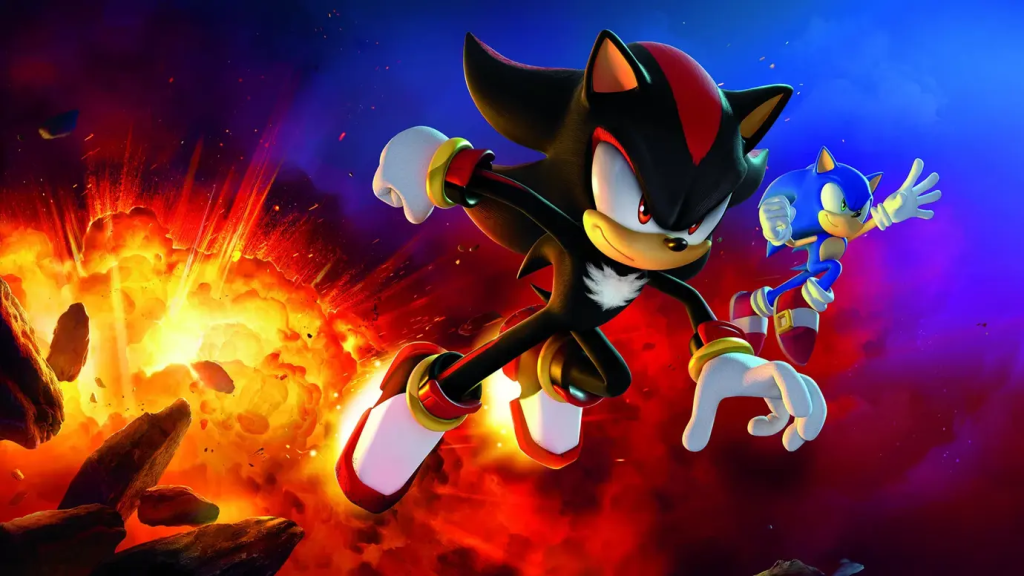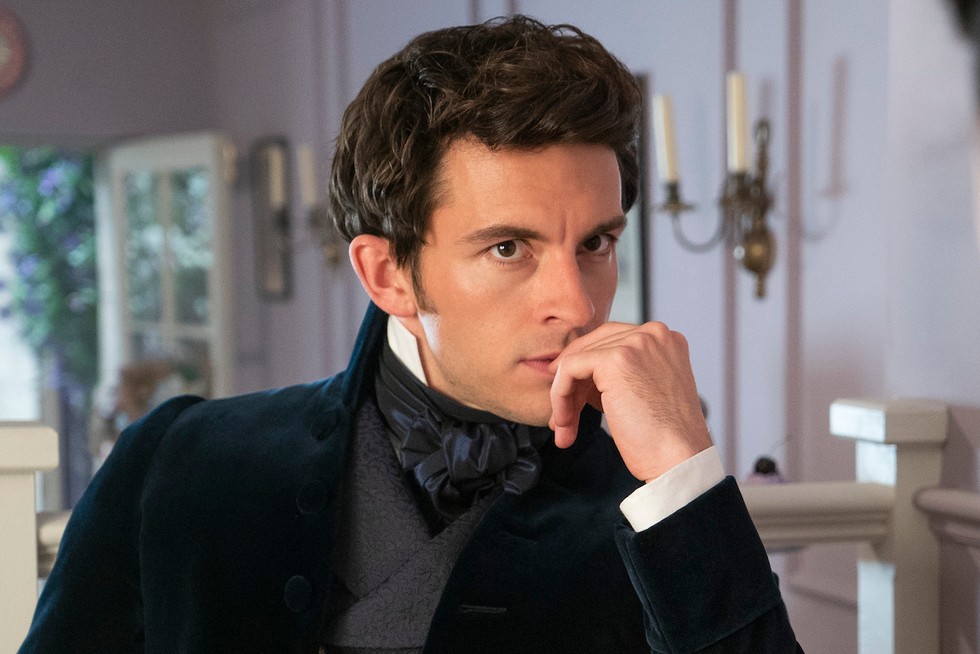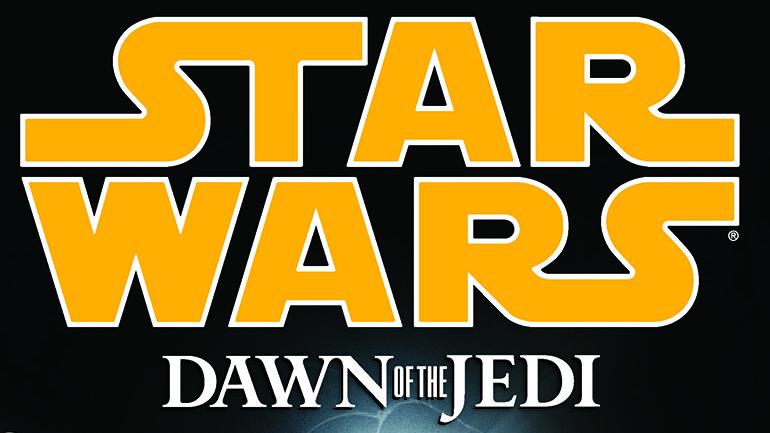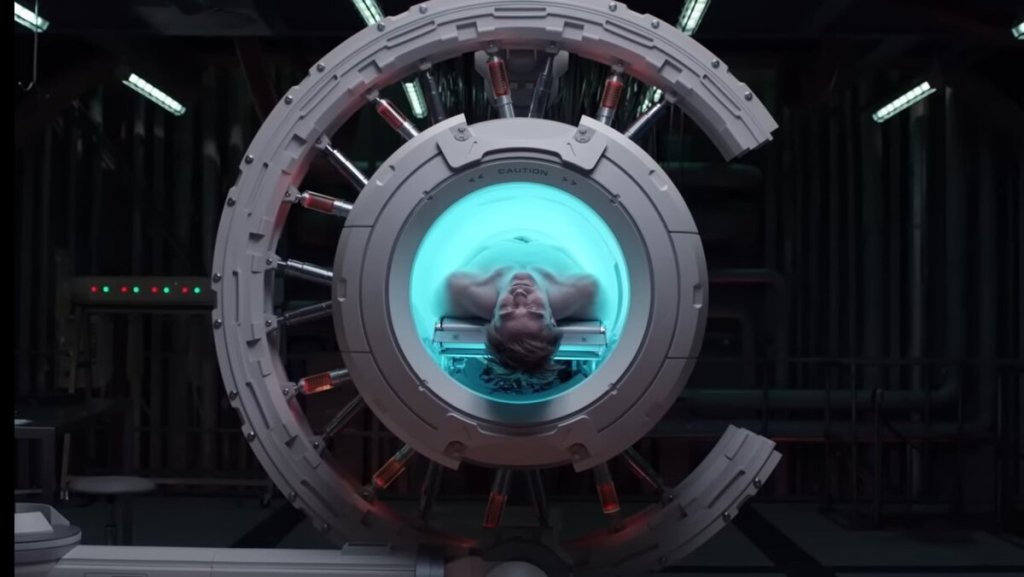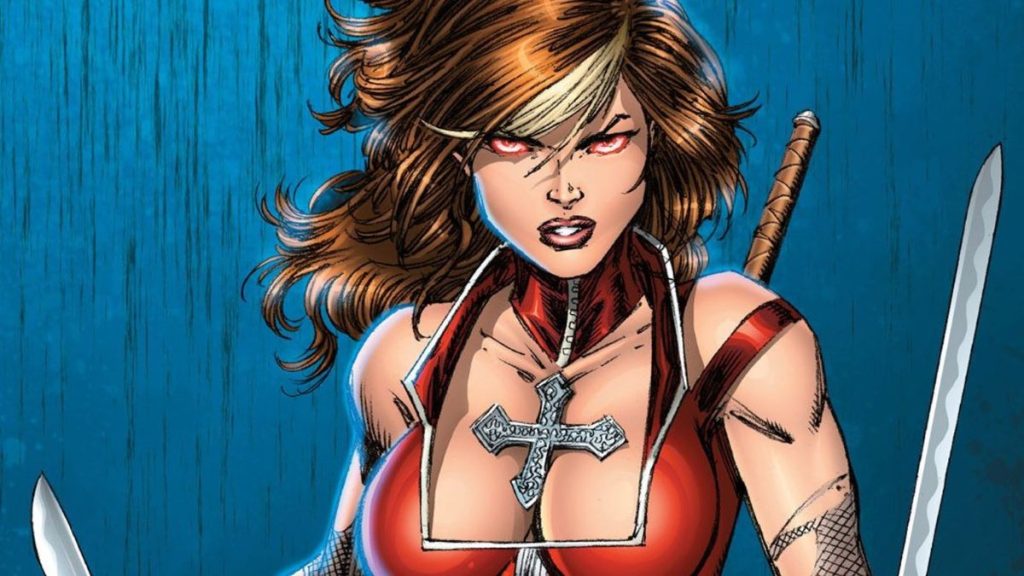It’s funny how the world turns, isn’t it? Back in Doctor Who’s mid-1970s heyday, every episode was like a trip inside a child’s nightmarish perception of some pretty lurid, and in many ways exotic adult fiction. And the larger-than-life dialogue and performances were there to disguise how essentially meaningless – no matter how fun – it all was, with Tom Baker’s fourth Doctor fronting up against some memorable but ludicrous villains. ‘I could play all day in my green cathedral’ has to be one of the ripest and most ridiculous lines ever committed to VT, closely followed by, ‘Oh, what a magnificent head.’
Ten years earlier, the dialogue had been – mostly, the occasionally eloquent historical serial aside – considerably less florid, as this then-new series found its feet and developed an audience. Ten years after Tom Baker’s first flush of success, and the dialogue was now a brutal necessity, simply there to facilitate some equally brutal action. As the series evolves, so does its audience and their expectations, and the various factors which combine to create Doctor Who – the sets, the music, the performances, and the dialogue – similarly evolve to compensate.
What has all this to do with Demons of the Punjab? Simply that here, with the first episode of Series Eleven not to bear Chris Chibnall’s name on the writing credits, we have the best and most lucid example yet of quite what an evolution this latest version of Doctor Who has taken.
In 1964, the two travelling schoolteachers were an anchor of normality by which the audience could engage in an increasingly bizarre series of adventures, the programme performing a daring balancing act between the kind of visuals never before seen on British television, and character relationships – and through them a comprehension of the ideas – that were ordinary enough to offset the craziness. When the Daleks invade London, Barbara only manages to escape because she’s wetting her handkerchief in the river.
When Doctor Who returned in 2005, Russell T Davies was well aware of this contradictory relationship, and made a roaring success of throwing first a shop girl and later a temp into the heart of some wild and crazy adventures. And when Steven Moffat took what Davies had achieved and filtered it through his Sorkinese gift for dialogue and his Burtonesque imagination, he had a similar period of roaring success. By then the British public knew what the programme was, and wanted to see what it was capable of – just as they’d lapped up the utter bonkersness of Hinchcliffe and Holmes after the relative familiarity of Dicks and Letts.
But the Moffat era lasted perhaps two years too long, meaning the BBC risked a generation who hadn’t experienced enough of the basic version in order to relish its elaborate child. And when all you know is extravagance, it becomes harder to ground that in something more recognisable.
Demons of the Punjab, then, is 1964’s Marco Polo retold for an audience which cherishes Call the Midwife and Downton Abbey. There’s an apparent peripheral threat – albeit no explanation this time for a modern audience as to where the expression ‘deadliest assassin’ might have come from – and a predestined journey with a bittersweet destination, one which the characters had advance warning about, hailing from its future. And this is the polar opposite of Moffat’s approach, whereby the joy of the destination is in disguising its arrival, such that you only realised you knew what to expect in the moments after its materialisation. Here, Vinay Patel set up a pair of conundra – the fate of Yaz’ prospective step-grandfather-in-law, and the reason for the presence of aliens during the partition of India – and reveals the solutions to both long before either becomes relevant or prompt. Because this is the age of walking the audience through the plot, rather than leading them through it.
And that’s fine. This is a Doctor Who that’s no less the most unusual thing on British TV. It’s just unusual-with-a-map.
The story, then. In the months before Brexit threatens to become a segregating reality, on the day that the world stopped to remember the hundredth anniversary of a global disaster of a war, at a time when civilisation is at its most schismatic for decades, this was the most apposite episode of the series so far. And it did what Doctor Who is most famous for: it boiled all this hysteria, all this history, and all this allusion down to half a dozen people standing around talking in a barn.
It was an episode that asked you to respond to Yaz’ situation, but put that circumstance on too much of a plate for you to have to feel your way into it and thus fully empathise. And while Graham had another of his now-vaunted moments, it didn’t feel as earned as previous ones had, and his relationship with Ryan seemed to take a back seat too. The new Doctor is still too over-excited and too little in command, and with Mandip Gill underplaying – quite handsomely, it has to be said – the regulars did feel as much tourists as they did interested parties; tourists not just in history, but in people’s lives.
Mixed success, then. Segun Akinola’s music continues to confound, sometimes wonderful and understated, sometimes seriously failing to be as agile as this kind of drama demands. But boy, was this possibly the most visually gorgeous episode ever. If it was stodgy, then, like unsweetened porridge – filled with substance and oh so very good for you, but not as easy to digest as it might have been – at least it was beautiful to look at.
It looks like Series Eleven might not get any lighter on its feet than this. What we’re getting is mostly good, often solid, and always straightforward Doctor Who. But after eight years of Steven Moffat, and with Chris Chibnall’s plan to revisit 1964 from a modern political perspective more apparent than ever, this does very much feel like Russell T Davies at 33 1⁄3 rpm.
DOCTOR WHO SERIES 11, EPISODE 6: ‘DEMONS OF THE PUNJAB’ / WRITER: VINAY PATEL/ DIRECTOR: JAMIE CHILDS / STARRING: JODIE WHITTAKER, BRADLEY WALSH, TOSIN COLE, MANDIP GILL, AMITA SUMAN, SHANE ZAZA, LEENA DHINGRAHAMZA JEETOOA / RELEASE DATE: AVAILABLE NOW ON I-PLAYER (AIRED NOVEMBER 11TH)

